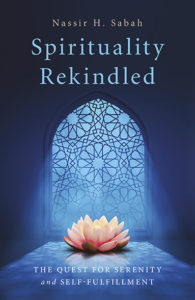Nassir H. Sabah
The following is an intriguing story by the distinguished Indian intellectual and Islamic scholar, Dr. Mohammad Hamidullah, cited by Mr. Rezaul Haque. It is an extraordinary aspect of the miraculousness of the Quran that further attests its divine origin.
I have known a Frenchman, Gilles Guilbert, who by taste, nature, and profession was a musician. He used to assert often and everywhere to our amusement that the true and only criterion by which the civilization and culture of a people could be judged was the level of its love for music.
Somehow, he heard one day a Muslim Qari’ reciting the Holy Quran, and Guilbert was at once enchanted. It was music to him, and so powerful that wherever he went he wanted to hear the Qur’an recited. And he was so much more impressed when he was told that it was not a poem but prose.
He began meditating: Poems in any and every language are melodious and could be measured and scanned, but prose nowhere. Why an exception in Arabic? Then he learned Arabic script and began reading the Quran himself. He bought a pocket-size copy of the sacred text and carried it always with him.
He even began learning by heart small surahs. And at last, he decided to jump and became Abdullah Guilbert.
I met him for the first time in Istanbul, some 40 years ago, and there he explained to me his theory or discovery that poems can be measured and scanned with mathematical precision in any language, but not prose works, be that a classical or modern language; the only exception is Arabic; and in Arabic, only the Quran. So the Quran cannot be of human origin, surely it is the revealed word of God himself, for its verses can be scanned like the syllables of a hemistich, so much so that even if a single letter of a verse of the Quran is omitted it can be detected immediately on hearing it.
I was impressed myself, but not being a musician myself, I was not much interested. One day he came to see me in the university, very nervous, agitated, perplexed, and trembling. He told me: surely our Muslim ancestors have somehow lost some passage of the Quran! Then he explained: In the surah 110 (which begins with: Iza Ja’a Nasrullahi…), they read and write: “afwajaa fasabbih…” (the last word of the second verse and the first word of the third verse) and that is, musically speaking impossible!
My humble knowledge of tajweed (psalmody of the Quran) came to my help, and I said: “No, that is not the only right way of reading; one may also pronounce: afwajaaN fasabbih. The sound of the letter N in afwaajan may then be pronounced full as afwaajan (according to Arabic grammatical parsing) instead of afwajaa. This may then be followed by the second word, fasabbih.
Thereupon, he recovered as if from a trance, and said: “Oh, if that is so, then it is alright, nothing lacks and I renew my faith!” But to Abdullah Guilbert, it was the music, nothing else, not even the grammar.
He loved Turks very much. So when in Paris, he used to go on Fridays to the Turkish mosque.
One day a Turkish friend came to see me and told me,” Abdullah Bey is very ill.” I didn’t know that. So at once, I went along with him to the house of the sister of Abdullah, where he was being treated. Alas, it was too late; he was in agony and lost all senses. One or two days afterwards he breathed his last. May God pour on him His blessing and mercy.
As to different aspects of the Quran, such as its script and its psalmody, I seek to remind the readers that the (modern) Arabic script was developed primarily for the exact pronunciation of the Holy Qur’an and the art of tajweed only to beautify the psalmody of the Quran.
Please listen to the different ways of recitation of Sura 110 (al-Nasr) by Qari’ Muhammad Siddiq Al-Minshawi as was suggested above by the author in the video clip below at 4:34 minute:
